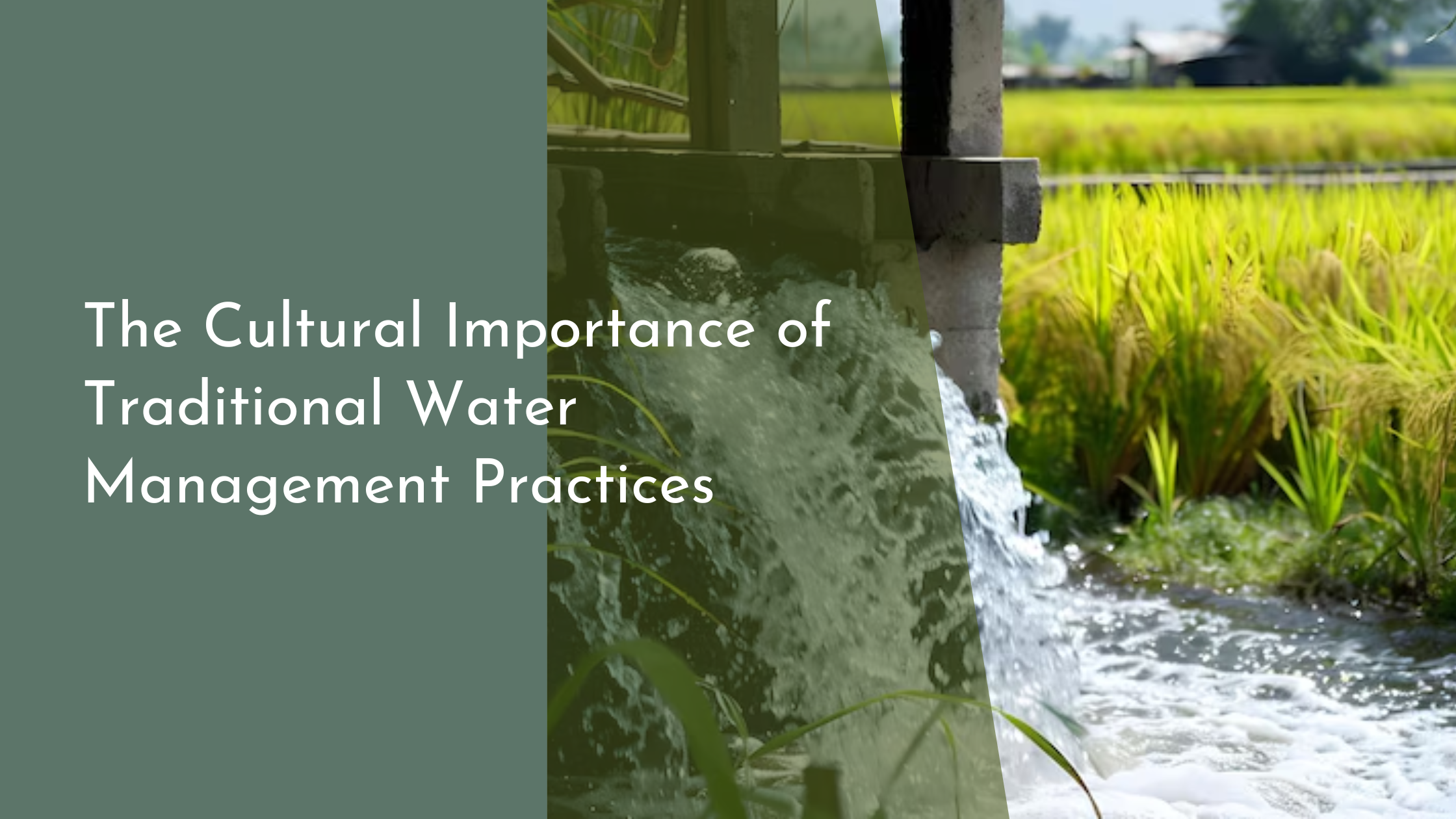The Cultural Importance of Traditional Water Management Practices
In an era where modern technology often overshadows age-old customs, there’s an emerging interest in revisiting traditional water management practices. These practices, steeped in cultural significance and environmental wisdom, offer invaluable lessons for sustainable living. As climate change and urbanization challenge modern water systems, communities worldwide are rediscovering the benefits of these time-tested techniques. This article delves into the cultural importance of traditional water management practices and their potential to inspire a future of efficient and sustainable water use.
Rediscovering Ancient Water Wisdom
Ancient water management systems represent a profound understanding of local ecosystems and climates. Cultures from around the world, from the intricate qanat systems in Iran to the sophisticated stepwells of India, developed ingenious methods to harness, store, and distribute water. These systems were not just about survival; they were integral to the social structure and spiritual life of communities. By valuing water as a sacred resource, these practices inherently promoted conservation and respect for nature.
The renewed interest in traditional water management is not just about nostalgia but about necessity. Modern infrastructure often struggles to adapt to the challenges posed by climate change, such as erratic rainfall patterns and increased droughts. In contrast, ancient techniques like rainwater harvesting and terracing mimic natural processes, providing more resilient and adaptable solutions. Rediscovering these practices can offer practical insights into managing water sustainably in the face of global environmental changes.
Techniques Passed Down Through Generations
Traditional water management techniques are a testament to human ingenuity and adaptability. In arid regions, methods like fog harvesting and the construction of cisterns allowed communities to thrive despite scarce rainfall. These techniques, passed down through generations, often involved simple yet effective solutions that worked in harmony with the natural environment. They highlight how traditional knowledge can complement modern science in solving contemporary water challenges.
For instance, the “zai” technique used in West Africa involves digging small pits that capture rainwater and concentrate nutrients for crops. This ancient practice has been revitalized in areas facing desertification, proving its enduring effectiveness in enhancing soil fertility and conserving water. By studying and replicating such traditional methods, modern societies can tap into a wealth of knowledge that prioritizes sustainability and resilience.
Community Bonds and Sustainable Practices
Traditional water management practices often served as a focal point for community cohesion and collaboration. Water management, historically, was a communal effort, requiring the participation and cooperation of entire villages. This collective responsibility fostered strong community bonds and promoted social harmony. The shared goal of ensuring water availability for all members of the community encouraged equitable and sustainable resource management.
In contemporary times, reintroducing these traditional practices can revitalize community engagement and stewardship of natural resources. By involving local populations in water management, communities can foster a sense of ownership and accountability. Moreover, these practices often encourage a deeper connection to the environment, allowing individuals to appreciate the delicate balance of nature and the importance of conserving it for future generations.
Embracing Tradition for a Thirst-Free Future
By embracing traditional water management practices, societies can work towards a future where water scarcity is a challenge of the past. These practices offer solutions that are not only environmentally sustainable but also economically viable, often requiring fewer resources than modern alternatives. Integrating traditional techniques with cutting-edge technology can lead to innovative solutions that maximize efficiency while minimizing environmental impact.
Governments and organizations are increasingly recognizing the value of traditional knowledge in creating sustainable water management policies. By learning from the past, we can build a future where access to clean, reliable water is a reality for everyone. In doing so, we honor the cultural heritage and wisdom of the communities that have long understood the importance of living in harmony with nature.
The cultural importance of traditional water management practices is undeniable, offering a bridge between the past and the future. As we confront the looming challenges of water scarcity and climate change, these ancient systems provide a roadmap for sustainable living. By appreciating and integrating these time-tested techniques, we can foster a more harmonious relationship with our environment, ensuring that future generations inherit a world where water is respected and preserved as the precious resource it is. Let us celebrate and learn from the wisdom of our ancestors, paving the way for a sustainable and thirst-free future.



